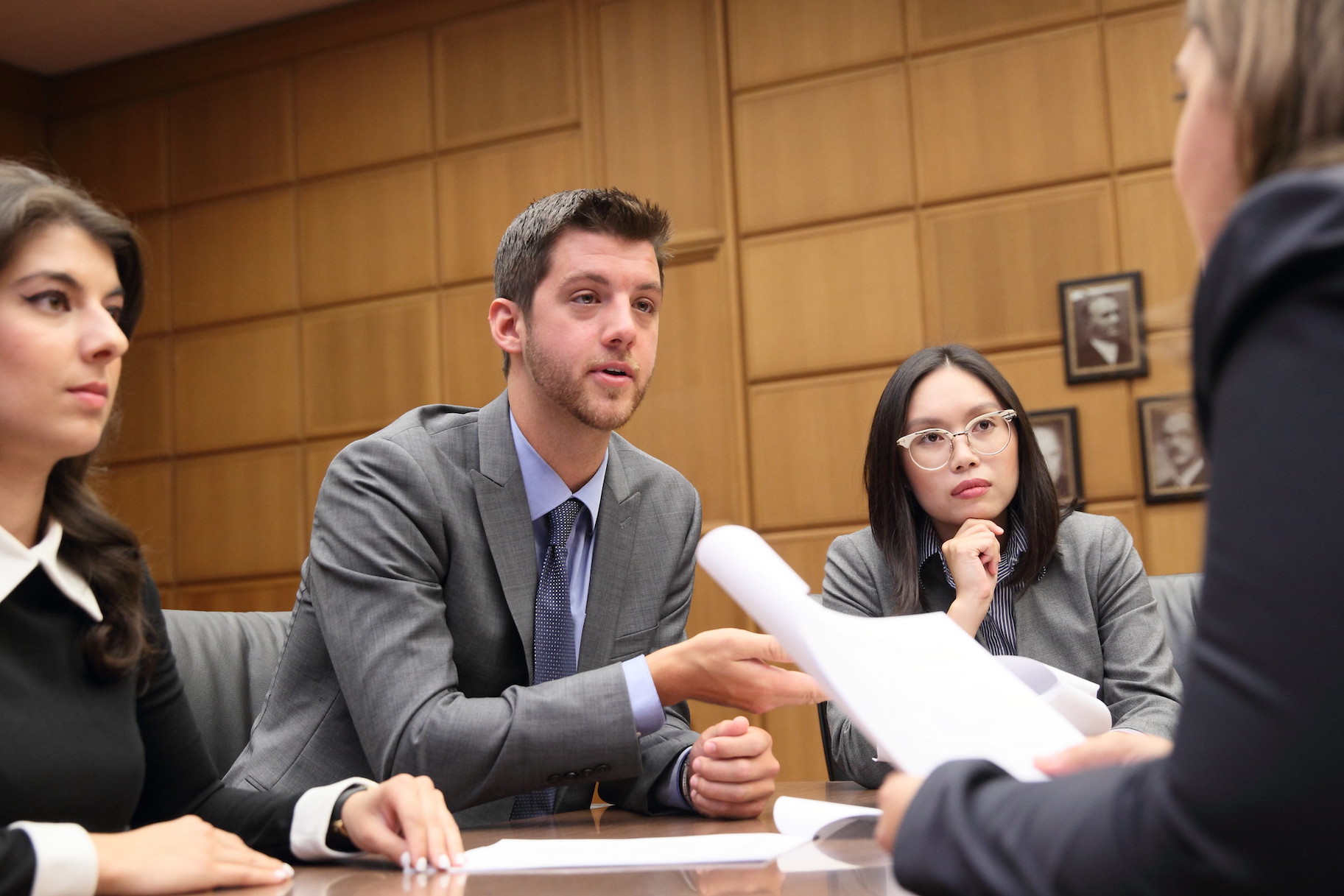Government Attorneys in the Judicial Process Government attorneys work at all levels of the judicial process, from trial courts to the highest state and federal appellate courts. Federal Prosecutors. Each federal judicial district has one U.S. attorney and one or more assistant U.S. attorneys. They are responsible for prosecuting defendants in criminal cases in the federal district courts and for defending the United States when it is sued in a federal trial court. U.S. attorneys are appointed by the president and confirmed by the Senate. Nominees must reside in the district to which they are appointed and must be lawyers. They serve a formal term of four years but can be reappointed indefinitely or removed at the president’s discretion
. The assistant U.S. attorneys are formally appointed by the U.S. attorney general, although in practice they are chosen by the U.S. attorney for the district, who forwards the selection to the attorney general for ratification. Assistant U.S. attorneys may be fired by the attorney general. In their role as prosecutors, U.S. attorneys have considerable discretion in deciding which criminal cases to prosecute. They also have the authority to determine which civil cases to try to settle out of court and which ones to take to trial. U.S. attorneys, therefore, are in a very good position to influence the federal district court’s docket. Also, because they engage in more litigation in the district courts than anyone else, the U.S. attorneys and their staffs are vital participants in policy making in the federal trial courts.
take cases to the courts of appeals, and aid the solicitor general’s office in cases argued before the Supreme Court. U.S. Solicitor General. The solicitor general of the United States, the thirdranking official in the Justice Department, is assisted by five deputies and about 20 assistant solicitors general. The solicitor general’s primary function is to decide, on behalf of the United States, which cases will and will not be presented to the Supreme Court for review. Whenever an executive branch department or agency loses a case in one of the courts of appeals and wishes a Supreme Court review, that department or agency will request that the Justice Department seek certiorari. The solicitor general will determine whether to appeal the lower court decision. Many factors must be taken into account when making such a decision.
Perhaps the most important consideration is that the Supreme Court is limited in the number of cases it can hear in a given term. Thus, the solicitor general must determine whether a particular case deserves extensive consideration by the Court. In addition to deciding whether to seek Supreme Court review, the solicitor general personally argues most of the government’s cases heard by the High Court.
Other Government Lawyers. At both the state and federal levels, some government attorneys are better known for their work in appellate courts than in trial courts. For example, each state has an attorney general who supervises a staff of attorneys who are charged with the responsibility of handling the legal affairs of the state. At the federal level the Department of Justice has similar responsibilities on behalf of the United States.
The U.S. Department of Justice. Although the Justice Department is an agency of the executive branch of the government, it has a natural association with the judicial branch. Many of the cases heard in the federal courts involve the national government in one capacity or another. Sometimes the government is sued; in other instances the government initiates the lawsuit. In either case, an attorney must represent the government. Most of the litigation involving the federal government is handled by the Justice Department, although a number of other government agencies have attorneys on their payrolls. The Justice Department’s Office of the Solicitor General is extremely important in cases argued before the Supreme Court. The department also has several legal divisions, each with a staff of specialized lawyers and headed by an assistant attorney general. The legal divisions supervise the handling of litigation by the U.S. attorneys,
attorneys. Others will seek to become district attorneys or judges after a few years. The district attorney’s office has a great deal of discretion in the handling of cases. Given budget and personnel constraints, not all cases can be afforded the same amount of time and attention. Therefore, some cases are dismissed, others are not prosecuted, and still others are prosecuted vigorously in court. Most cases, however, are subject to plea bargaining.
This means that the district attorney’s office agrees to accept the defendant’s plea of guilty to a reduced charge or to drop some charges against the defendant in exchange for pleas of guilty to others Public Defenders. Often the person charged with violating a state or federal criminal statute is unable to pay for the services of a defense attorney. In some areas a government official known as a public defender bears the responsibility for representing indigent defendants.
Thus, the public defender is a counterpart of the prosecutor. Unlike the district attorney, however, the public defender is usually appointed rather than elected. In some parts of the country there are statewide public defender systems; in other regions the public defender is a local official, usually associated with a county government. Like the district attorney, the public defender employs assistants and investigative personnel.
Prosecutors at the State Level. Those who prosecute persons accused of violating state criminal statutes are commonly known as district attorneys. In most states they are elected county officials; however, in a few states they are appointed. The district attorney’s office usually employs a number of assistants who do most of the actual trial work. Most of these assistant district attorneys are recent graduates of law school, who gain valuable trial experience in these positions. Many later enter private practice, often as criminal defense


